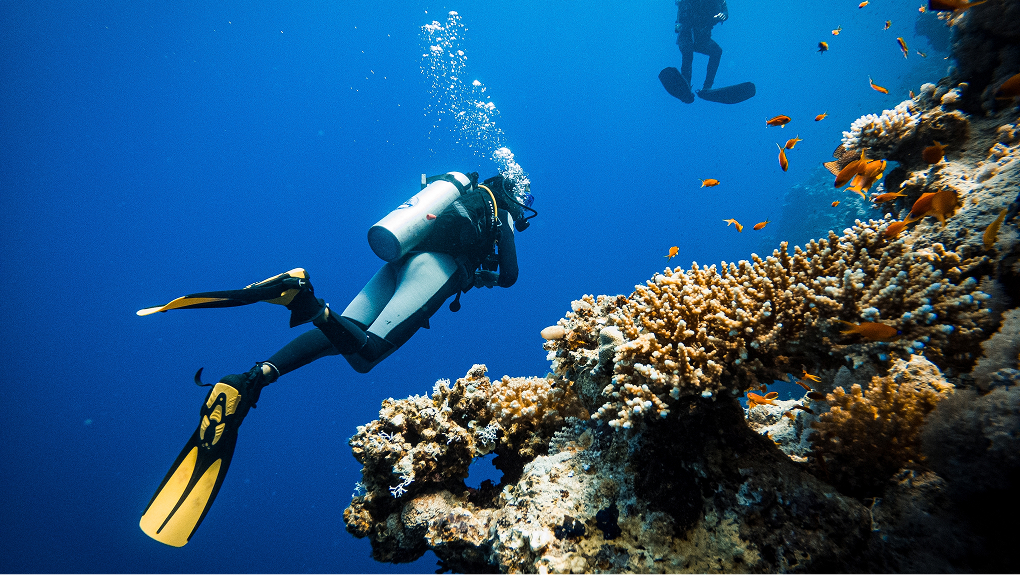“I’d recommend them to anyone working offshore. They fought hard and got me a settlement that helped cover my medical bills and lost wages.”

The Gulf Coast offers some of the most captivating dive sites in the world, attracting recreational enthusiasts, professional divers, and marine workers alike. However, beneath the surface lies a world of unique risks. When a scuba diving excursion turns tragic due to negligence, the resulting injuries can be life-altering, affecting neurological function, mobility, and overall health.
If you or a loved one has suffered a serious injury during a scuba diving accident in the Gulf or elsewhere, you need specialized legal representation from a firm that understands the intricacies of maritime law and the science of diving medicine. At our firm, our experienced maritime injury lawyers are dedicated to fighting for the rights of injured divers, ensuring they receive the full compensation necessary for their extensive medical care and long-term recovery.
Scuba diving, while exhilarating, involves operating in an extreme environment under immense pressure. Even minor errors or equipment failures can lead to catastrophic consequences.
Diving injuries often stem from pressure changes, equipment malfunctions, or environmental hazards:
Many scuba diving injuries are preventable and often result from negligence:
Determining who is responsible for a scuba diving injury can be complex, involving multiple parties and specialized maritime laws.
The owner or operator of a dive boat (whether recreational charter or commercial vessel) owes a duty of care to passengers and crew. Negligent operation, lack of proper safety equipment, or failure to monitor divers can lead to liability.
Manufacturers, distributors, or dive shops that rent or sell equipment can be held liable if a defect in the gear caused or contributed to the injury. This falls under product liability law.
Dive instructors, divemaster’s, and tour companies have a professional duty to ensure the safety of their clients. If they fail to provide adequate training, supervision, or adhere to recognized safety standards, they can be held accountable.
For individuals injured while engaged in commercial diving operations (e.g., offshore oil & gas divers, salvage divers, public safety divers), different maritime laws may apply:
Navigating the legal landscape after a scuba diving injury requires an attorney with specific knowledge of maritime law.
Most serious scuba diving accidents occurring on navigable waters (which includes most coastal waters, bays, and rivers used for commerce) fall under federal maritime law. This body of law has unique rules regarding liability, comparative fault, and damages that differ significantly from state personal injury laws. An experienced maritime attorney can determine the appropriate jurisdiction for your claim.
Many dive operations require participants to sign waivers or releases of liability. While these documents aim to protect the dive company, they are not always fully enforceable under maritime law, especially if the injury resulted from gross negligence, recklessness, or violation of safety statutes. Our attorneys can analyze your waiver and advise you on its enforceability.
Scuba diving injury cases are highly complex, involving specialized medical knowledge, intricate accident reconstruction, and unique legal challenges.
Our firm will conduct a thorough and immediate investigation, which includes gathering dive logs, equipment maintenance records, incident reports, and weather data, interviewing witnesses (divers, boat crew, instructors), consulting with dive medicine experts, hyperbaric physicians, and accident reconstructionist to understand the cause of injuries like DCS or AGE, and analyzing dive gear for defects or improper assembly/maintenance.
We understand the burden of proof in maritime cases. We will work to establish that the negligence of the dive operator, instructor, equipment manufacturer, or employer directly caused or contributed to your injuries.
Scuba diving injuries often lead to permanent disabilities, chronic pain, and extensive medical needs. We work with life care planners and economists to meticulously calculate the full extent of your damages, including:
Seek immediate medical attention, especially if you suspect decompression sickness (DCS) or arterial gas embolism (AGE). Notify the dive operator or instructor and ensure an incident report is filed. If possible, document the scene, equipment, and your injuries with photos. Do not admit fault or sign any documents without legal counsel.
Generally, the statute of limitations for maritime personal injury claims is three years. However, recreational dive operators often include clauses in waivers that attempt to shorten this to one year. It is critical to contact a maritime attorney immediately to protect your rights, as these deadlines are strict.
While waivers aim to protect dive operators, they are not always ironclad, particularly under federal maritime law. Waivers may not be enforceable if your injury resulted from gross negligence, reckless conduct, or violations of safety regulations. An attorney can review your specific waiver and advise on its enforceability.
The main difference lies in the applicable laws and potential compensation. Recreational divers typically pursue negligence claims under general maritime law. Commercial divers, if they qualify as “seamen,” may have claims under the Jones Act, which offers broader protections and damages, including “maintenance and cure.”
Compensation can cover medical expenses (including hyperbaric treatment), lost wages, loss of future earning capacity, pain and suffering, emotional distress (e.g., PTSD), and other related damages. The specific amount depends on the severity of your injuries and the facts of your case.
A serious scuba diving injury can turn your life upside down, leading to long-term health challenges and significant financial burdens. You deserve a dedicated legal advocate who understands the nuances of diving accidents and the complexities of maritime law. At our firm, our Gulf Coast Scuba Diving Injury Lawyers are here to provide the aggressive and compassionate representation you need. We are committed to holding negligent parties accountable and helping you secure the maximum compensation for your recovery and future.
Don’t let time run out on your claim. Critical deadlines may apply.
